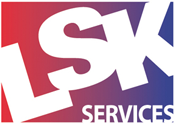I’ve been doing a bit of thinking lately, and a lot of my clients ask about why their computer is running so slow. I asked a few questions, and these tend to be asked more often than not, and helps to get to the route of the problem, while also fixing the computer at the same time…
1) Uninstall unused programs
New PCs come with a whole load of programs you will never use, and you probably don’t even know they exist. Some programs even run background processes when you start your computer, even though you are not using them.
2) Free space on your hard Drive
Your hard drive could be too full of data to function efficiently. There should be at least 200-300MBs of free space to allow for disk file chores. Note that this mostly applies to the C: drive or whatever drive your Window’s cache is on. If you’re C: drive is too full, delete unused programs on the C: drive to make space.
3) Automatically delete temporary files
Temporary files amass on your computer through everyday tasks and can remain on your hard disk, slowing the computer down. Getting rid of these files, including your internet history and cookies, should give you a larger amount of hard disk space, speeding up your PC.
4) More hard drive storage
Even if you make sure to regularly clean out all your temporarily files, if your hard drive becomes 85% full, it’s going to affect your computer’s speed. Your hard drive should have over 50% of free space available.
5) Prevent unnecessary start ups
This method will primarily affect how long it takes for your laptop or PC to start up, but often many of the programs which are launched on start up continue to run and use up your computer’s memory.
6) Run a disk defragmenter
Sounds complicated, but this is basically a way of reconfiguring how your hard drive stores information for maximum efficiency. Windows also includes a built-in disk de-cluttering tool called “Disk Cleanup”. It searches through the system for unnecessary large files such as temporary Internet files, program installers, and so on.
7) Check you computer has all the latest updates
Check that you have all the latest Windows updates then back up your whole PC, or at least any data that you have not already backed up. Create a Restore Point so you can go back to it. You could have old or conflicting Windows device drivers. An example would be you might actually have two entirely different video drivers on your system and Windows could actually be alternately using both of them.
8) Check you computer for Ad ware, Spyware, or viruses,
Your computer could be full of Ad ware, Spyware, viruses, or Trojans. These are all nasty programs that will not only slow down your computer; they will literally take over the functioning of your computer. You definitely don’t want any of these parasite programs on your computer. To get rid of these parasite programs, and to prevent them from installing in the first place, you need up-to-date firewall, anti-virus, and Spyware removal Programs. These are three separate software programs that must be running at all times. It is very important that these programs continuously update themselves or they will become out-dated and will no longer be useful. These programs can be purchased together or from separate manufacturers or free programs can be used. Be careful of any “free” virus removal websites. Most of those are either not free, scams, or sites that will actually infect your computer with even worse viruses.
9) Give your computer a static IP
Another trick for speeding up your computer loading time is to give your computer a static IP address that never changes. When you start up your computer, it spends a decent amount of time asking the network for an IP address. Not only does having a static IP address make the network easier to manage (particularly if you have several devices using the same network), but it also cuts time off your start up.
10) Install more RAM
RAM, which stands for Random Access Memory. This is the temporary storage memory used by your computer and is in use when tasks are being executed by different programs. Therefore, the more programs you use, the more RAM you need, and the slower your computer will be if you don’t have enough. A clear indicator of not having enough RAM is if your computer slows down every time you try and process large files, or it freezes will carrying out several different actions at once.
Take a look at these and come back to us with the asnwers. If you answer yes to any of these, get the PC tuned up or cleaned. We have a nice little offer on here the moment with a free antivirus software with all computer health checks.
